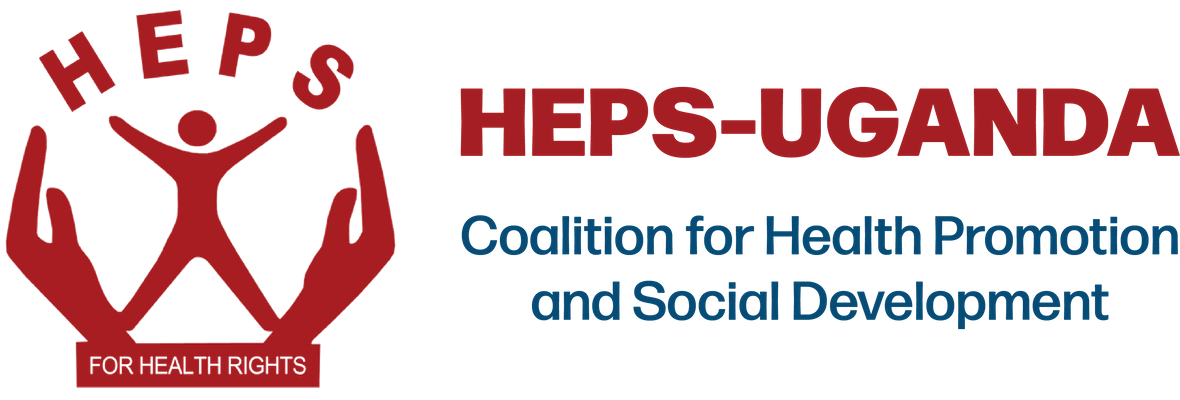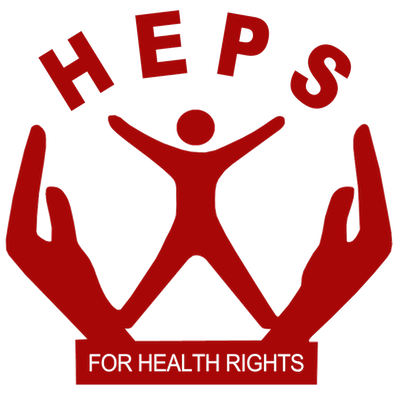From us,
Mortality Surveillance Stakeholder meeting: HEPS-Uganda represented civil society organisations (CSOs) at the National Mortality Surveillance Stakeholders Quarterly meeting organized by the Ministry of Health in collaboration with CDC and AFENET last week. Dr. Allan Muruta, Commissioner of the Department of Integrated Epidemiology, Surveillance and Public Health Emergencies, acknowledged the valuable contributions of stakeholders and called for financial support to finalize, widely disseminate, and monitor the guidelines and related standard operating procedures (SOPs) across the country to enhance informed decision-making.
Immunisation outreach continues: HEPS Uganda@25 successfully carried out another immunization outreach in Mubende District. These initiatives began in February 2025 and demonstrate our dedication to promoting healthcare equity by reaching remote communities and empowering them with knowledge and information to claim their health rights. The latest outreach took place on Thursday, 14 August 2025, in Rwegula village, Kasambya sub-county, Mubende district.
From our partners
CEHURD partnered with the Buganda Kingdom to host the Buganda Men’s Convention (Ttabamiruka) 2025 on 14 August at Bulange, Mengo. The event was led by Katikkiro Owek. Charles Peter Mayiga, with Rt. Hon. Thomas Tayebwa is serving as the Chief Guest. Held under the theme, “Positioning Men in Families for Social Economic Development,” the Convention sparked important conversations about positive masculinities and men’s roles within the family.
SRHR Alliance Uganda launched its Annual Alliance Week 2025 in Kapchorwa, beginning at Gamatui Girls School. A group of young representatives from the Youth Advisory Committee and partner organizations engaged students in discussions about the importance of prioritizing their health. Key topics included menstrual hygiene management, mental health, consent, and the significance of seeking medical care for any health concerns.
SEATINI: Southern and Eastern Africa Trade, Information and Negotiations Institute(SEATINI) held a two-day Regional Multi-Stakeholder Dialogue on Sexual and Gender-based Violence (SGBV). SEATINI reported that powerful testimonies and bold ideas emerged on ending SGBV, reclaiming women’s rights, and reshaping commercial investment schemes in the East African Community (EAC).
ICWEA: This week, ICWEA, with support from the UN Spotlight Initiative and UNDP Uganda, trained CSOs in Arua and Terego to monitor sexual and reproductive Health and Rights (SRHR) and gender-based violence (GBV) services and advocate for better delivery, especially for women and girls living with HIV, with disabilities, and those in refugee settings.
From your community,
Hoima: Hoima district has emerged as the top performer in the Bunyoro Sub-region in the battle against maternal mortality, recording zero maternal deaths during the 2024/25 financial year. According to the Ministry of Health’s Institutional Maternal Mortality and Perinatal Mortality Rate Report for the year, which was released last week, the district registered no maternal deaths in health facilities and successfully delivered 5,961 babies.
Mityana: Residents of Lake Wamala Island in Mityana district have appealed to authorities to address what they describe as a growing healthcare crisis, saying the absence of nearby facilities is putting their lives at risk. The Islanders who rely on fishing and small-scale farming report having to travel long distances by boat and then navigate poor road networks to reach the nearest health centres. These delays, they note, often result in extreme pain, worsening illness, and in some cases, life-threatening complications before medical help can be accessed.
Lyantonde: Patients and health workers at Lyantonde General Hospital have expressed outrage over the appalling state of the hospital’s mortuary, saying it is unfit for use and tarnishes the image of a major health facility, according to Nile Post of 17 August 2025. Hospital Administrator Muhammed Moses Mwesigwa was reported saying the mortuary has been in a dilapidated condition for years. In April 2017, Daily Monitor reported that patients and health workers had deserted the hospital over a stench emanating from the hospital’s mortuary.
Adjumani, Buyende: Child rights defenders have raised concern over high rates of teenage pregnancy in Uganda’s Adjumani and Buyende districts, warning that the crisis is fuelling school dropouts and threatening the futures of thousands of girls. A policy brief by the Sexual Health and Reproductive Education project, authored by Right to Play, an international NGO working to empower vulnerable children, shows the problem is acute in both rural districts.
From Uganda,
Mastercard Foundation donates vaccine solar refrigerators to Uganda: In a major step towards strengthening immunization services, the Ministry of Health has received 500 Solar Direct Drive (SDD) refrigerators, procured by UNICEF with support from the Mastercard Foundation through Africa CDC. The refrigerators will be installed in health facilities across the country to enhance vaccine storage and delivery, especially in hard-to-reach and off-grid areas.
Byanyima urges Government to meet the full cost of HIV treatment, prevention: The joint United Nations Program on HIV/AIDS (UNAIDS) has urged the Government to meet the full cost of keeping people on HIV treatment as well as protecting the population from getting infected. The appeal was made by the agency’s Executive Director, Ms Winnie Byanyima, at the 3rd annual reproductive justice litigation Baraza organized by Afya na Haki Institute. Of the 1.53 million people living with HIV in Uganda, the government has successfully enrolled 1.4 million people on treatment with a lot of support from the International community, Global Fund PEPFAR.
Mental Health Experts Urge Uganda to Adopt National Suicide Prevention Policy: Mental health experts in Uganda are calling for urgent adoption of the National Suicide Prevention Policy, warning that the country is facing a growing suicide crisis that is silently claiming lives, particularly among young people. Speaking during the L.I.V.E conference 2025 launch discussions, mental health advocates and psychologists emphasized that suicide in Uganda is not merely a personal tragedy, but a public health emergency that requires coordinated national action.
Cerebral malaria is a fast-killing threat to children in Uganda: Cerebral Malaria, a severe brain-targeting form of malaria, remains one of Uganda’s deadliest health threats, striking children at an alarming rate and leaving survivors at risk of lifelong complications. Uganda records between 12 and 16 million malaria cases each year, placing it among the most affected countries globally, according to Richard Idro, associate professor of paediatrics and child health at Makerere University College of Health Sciences.
From the region,
Rwanda reconsiders malaria vaccines amid surprise surge: After years of progress in reducing malaria cases, Rwanda is confronting a surprising resurgence and signs of treatment resistance that have forced officials to revisit a vaccine intervention the country once declined. Rwanda had recorded steady declines in malaria infections for nearly a decade, with cases falling from nearly five million in 2016 to just 430,000 in 2023 – about a 90 per cent reduction – according to figures from the Rwanda Biomedical Centre (RBC). But these gains are now under threat, an official of the RBC said.
TAMWA, Ramaiah boost women’s health: In a powerful step toward community empowerment and improved public health, India’s Ramaiah International Hospital has formed a groundbreaking partnership with the Tanzania Media Women’s Association (TAMWA). The collaboration is poised to bring lasting benefits to Tanzanian women, especially those in the media, by offering critical medical sponsorships and ongoing health education.
Local antivenom production is unwelcome in Kenya: Kenyan innovators undertaking research into a super antivenom against snakebite have complained of extortion, denial of services, dispossession of patent rights, unauthorised use of licensed samples, threats, injustice, outright sabotage, and frustration are just a glimpse of the obstacles the Kenyan innovators have endured over the past five years. The traditional antivenom – Muthea – registered 80% efficacy in saving lives and limbs, as demonstrated by the Kenya Medical Research Institute (Kemri), but the innovators’ company, SB Alexa, has been unable to register with the Pharmacy and Poisons Board have been futile.
Global health security
Sudan: Refugees face cholera outbreak with nothing but lemons for medicine: In cholera-stricken refugee camps of western Sudan, every second is infected by fear. Faster than a person can boil water over an open flame. Cholera is ripping through the camps of Tawila in Darfur, where hundreds of thousands of people have been left with nothing but water they can boil to serve as both disinfectant and medicine.
Funding shortfall could cause 6.6 million HIV infections:
UNAIDS has issued a stark warning that “6.6 million more people could get HIV by 2029 if we don’t urgently close the funding gap.” The latest data shows that 1.3 million people acquired HIV in 2024, a figure nearly unchanged from the previous year, despite a 40% decline in new infections since 2010. Global funding for HIV responses in low and middle-income countries stood at $18.7 billion in 2024 – 17% short of the $21.9 billion needed to stay on track to end AIDS by 2030.
Gates Foundation to spend $2.5bn on women’s health: The Gates Foundation will spend $2.5 billion by 2030 on women’s health. The founder, Bill Gates, said recently that the area, including conditions from pre-eclampsia to menopause, has been neglected for too long. The investment is among its first big commitments since Gates announced earlier this year that he would give away his $200 billion fortune by 2045. It is around one-third more than the Foundation spent on women’s and maternal health research and development over the last five years.







